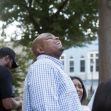Last week, Louisiana’s Gov. John Bel Edwards granted a posthumous pardon to Homer Plessy in what has been described as an effort to correct a historic injustice, 130 years overdue.
Plessy was the man behind the landmark Supreme Court case, Plessy v. Ferguson. In 1896, the Supreme Court decided in a 7 - 1 vote that the Jim Crow laws of the time which segregated whites and Blacks were not unconstitutional so long as the facilities provided equal access. The decision grew to be known as the standard of “separate but equal.”
The landmark ruling came after Homer Plessy, a mixed-race New Orleans man, rode on a “Whites only” train car. After refusing to leave the car, Plessy was arrested for violating Louisiana's Separate Car Act of 1980 which required whites and Blacks to ride in separate rail cars. Plessy was found guilty after his trial, and after his appeal went before the Supreme Court four years later, all but one justice ruled in favor of the conviction.
The 1896 ruling has remained to be one of the worst Supreme Court decisions in U.S. history. And while the decision has never been overruled, the ruling lost merit after the 1954 decision in Brown v. Board of Education in which the Supreme court ruled 9 - 0 that racial segregation was a violation of the Fourteenth Amendment, ultimately rejecting the “separate but equal” standard.
In a press release about the pardon, Gov. Edwards likened Plessy’s actions to the courageous efforts of Rosa Parks when she refused to give up her seat on the bus.
"While this pardon has been a long time coming, we can all acknowledge this is a day that should have never had to happen," Edwards said at the signing ceremony which took place in New Orleans, near the train station where Plessy was arrested.
“It left a stain on the fabric of our country and on this state and on this city,” Edwards shared before signing the pardon. “And, quite frankly, those consequences are still felt today.”
The posthumous pardon came after the Orleans Parish District Attorney Jason Williams submitted an application to the Louisiana Board of Pardons. Williams shared at the ceremony, “I did not submit this pardon asking for Homer Plessy to be forgiven; I submitted asking for us to be forgiven, the institution. We must reckon with our past. We must confront, we must acknowledge and we must humbly ask for forgiveness for the role our legal institutions have played in the apartheid the people of this country have endured.”
Descendants of Plessy and John Howard Ferguson, the Louisiana judge who upheld the state’s segregation law, were present at the ceremony. Among them were Phoebe Ferguson, John Howard Ferguson’s great-great-granddaughter, and Keith Plessy, Homer Plessy’s cousin three generations removed.
Plessy shared at the ceremony, “I feel like my feet are not touching the ground today because the ancestors are carrying me.” Ferguson shared that the pardon felt like “a new dawn for civil rights.” She added, "This doesn't erase the wrong. We can't undo the wrongs of the past, but we can learn from them and keep them from happening in the future."
According to the Governor’s office, this is the first pardon under Louisiana's 2006 Avery Alexander Act. Under the Act, people who were convicted of crimes under laws that seek to discriminate are eligible to file for a pardon. Plessy’s pardon came in part after the recommendations made by both Plessy and Ferguson families.






